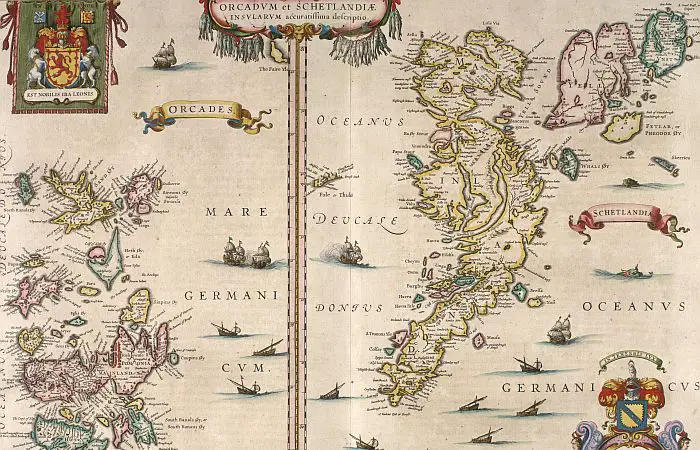Perceptive Travel Book Reviews May 2021
by Susan Griffith
In this issue: A diverse collection of stories by travelers who have chosen adventure over fear; a delightfully droll tale of a young writer enjoying a series of bus tours with retirees; and a beautifully designed volume of observations, reflections and maps of islands around the world.
Fearless Footsteps: True Stories that Capture the Spirit of Adventure
edited by Nathan James Thomas and Jennifer Roberts
These true travel stories were chosen by the editors of the online travel magazine Intrepid Times who sponsored a writing competition. Unlike contributors to Perceptive Travel, not all of the writers are published authors and the writing quality is uneven. The good news is that none of the 36 pieces is longer than six pages, so if your appreciation of one wanes, another will soon come along to pique your interest.
Its variety is what keeps the reader engaged. Writers from around the world, including one from Algeria, describe challenging travel predicaments in both exotic and familiar locations. According to the editors' Introduction, the ingredient which turns a travel experience into an adventure is the element of fear. One person's adventure (boarding a plane when mortally afraid of flying) is another person's humdrum experience (boarding a plane without a hint of aviophobia). Not everyone would experience a paroxysm of fear when faced with the no-clothes rule in a bath house in suburban Taipei, yet the situation gives rise to an entertaining piece of writing.
Some tales are funny (the marathon runner convinced he is being hunted by lions in the Namib Desert). Some are intriguing (the encounter in a Moroccan resort with a fisherman-cum-drug-dealer-cum madman). Others focus on the suffering of people encountered, like the Afghan refugees in Greece and a sulphur miner working in inhumane conditions in East Java, which put into perspective the fears of privileged travelers.
A few contributors have a tendency to overplay the dangers and to amplify quite ordinary ventures like river-tubing or mountain hiking. Someone exploring an abandoned mill on the Greek mainland melts "into its foreboding embrace" while a hiker on Mount St Helens expects to be suffocated, crushed, vaporized or buried at any moment (spoiler alert — she wasn't). A muddy stretch of the long-distance Pennine Way in northern England becomes "the insatiable moor" that drags everything that tries to cross it down into its depths (ditto). Many contributors seem to start from a point of disproportionate timidity that has to be overcome.
The fear need not be physical. A young British nurse working in Switzerland has to overcome her fear of speaking French in the face of the head nurse's contempt. Several stories are written by travelers coping with mental illness, one with post-natal depression who calms her soul by solo hiking in Wales. Another has been diagnosed with Generalized Anxiety Disorder or GAD (which she seems to tackle by "gadding about," without using that term!). A few stories are annoyingly navel-gazing with an over-use of the first-person pronoun. Inevitably, some are guilty of clichés, something we need like a hole in the head (I quote).
Curiously, women contributors outnumber men five-to-one. A number of adventures took place a long time ago, though only one, a trip to Antarctica in 2005, is actually dated. A nostalgic interest comes to the fore when reading about the terror of a hitchhiker picked up by a drunk driver, and about how people got out of scrapes pre-smartphone, pre-GPS. It would have been interesting to know when the trip to White Island in New Zealand took place. The writer's fear of the volatile volcano is thoroughly justified, in light of the eruption in December 2019 that killed 22 tourists.
The Gran Tour: Travels with my Elders
By Ben Aitken
A 30-something author who joins a series of very British bus tours for pensioners has quite a different take on "adventure." No more tales with headings like "On the Road to Panic" or "Trespassing in Tanzania." This book's title is a pun on the Grand Tour of the 18th century when privileged young gentlemen traveled round the cultural high spots of Europe in pursuit of art and antiquities. Nothing could be more opposite than short coach holidays, inclusive of food, bingo and cabaret, with your grandmother and her contemporaries in Britain and Ireland plus one to Italy.
The book is remarkably entertaining given its subject matter. In fact it is downright hilarious. With affection rather than mockery, the author picks out snatches of overheard conversation among the passengers who are mostly salt-of-the-earth working class Britons. He sees his granny strolling alongside a fellow passenger called Patrick and imagines them sharing their enjoyment of the Welsh scenery. When he catches up he hears: "So in conclusion, Janet, I won't be buying those crisps again." Just as they leave on a tour of the west of Ireland, he overhears this exchange between a couple: "Don't worry, I packed your electric toothbrush" to which the slightly affronted reply, "Jack, you're meant to be senile".
While the primary focus is on people, he also gives a flavor of places visited. He takes a keen pleasure in walking around new towns, however unremarkable, finding "novelty, drama, distress, beauty, history..." Like all good travelers, he is impatient to leave behind the postcard-pretty centers of popular places like St Ives in Cornwall; and provides a neat explanation for this urge: "a place is the sum of its parts, not some of its parts". Exploring the unglamorous margins may not be an obviously rewarding pastime, but I think he is on to something when he says, "If I'm in any way an adventurer, then it's of the urban, pedestrian kind, who seeks out normal things that are momentarily lit or framed or tainted so as to seem abnormal."
The author ponders the benefits of inter-generational communion, and realizes that the company of these elderly people makes him happy. He has more leisure with his granny than he's ever had to delve into family history. He laments the fact that the cultural diet of the new smartphone generation is almost exclusively what their peers are imbibing, limiting their fields of interest and affection.
By the end, not only has the reader been thoroughly amused, but he or she might have been persuaded that the trivial can be telling, that the author has a point when he says, "chance soundbites better reflect a people, a generation, a species, a carriage, an afternoon, than any canon of literature."

Island Dreams: Mapping an Obsession
Gavin Francis
This book of thoughtful meditations on islands is unusual and original. Gavin Francis has spent extended periods of time on many islands, from his native Scotland to the Arctic and Antarctic, Patagonia to the Andaman Sea. Surprisingly, the author's day job is as a physician in general practice in Edinburgh. I knew this before reading the book since I had tuned into a discussion in a literary festival in which he and another doctor held an illuminating discussion about how the British National Health Service has coped with the pandemic. You would never have guessed from this that he is an inveterate traveler nor that he has long been obsessed with islands.
At first I was dazzled by the breadth of reference — on a single 160-word page Francis might mention or quote from the yachtsman Joshua Slocum, the composer John Cage, Shakespeare's Caliban and St Columba, and then on an adjacent page Thoreau, Homer and the psychoanalyst Winnicott pop up. But then I began to wonder what the unifying thread was for these disparate allusions and quotations, and to feel uneasy at the non-sequiturs.
Occasionally we are given some autobiographical backstory. A broken heart propelled the author to Mount Athos where his mind is gradually eased in the company of Orthodox monks. I would have preferred more of the personal and fewer quotations. He is clearly a lover of birds; and his writing could be seen as the product of a cross between a seldom-landing swift and a thieving magpie.
The tension at the root of the book (and the author's life) is the longing both for connection with humanity and isolation. This may simply be what prompts many of us to absent ourselves from the ebb and flow of daily life to explore remote and lonely places (not necessarily islands). He refers to the deep joy that the philosopher Rousseau found in far niente (doing nothing) when he had an abundance of leisure and few possessions or people to distract him, on small St Peter's Island in a Swiss lake. This is a timely insight for those of us who have been exiled from normal life by the virus, which in some ways has turned our homes into islands.
The book is an object of beauty with 75 pages of mainly antique maps as well as lovely colored typography and dividing pages. The prose is spare and soothing. Francis is a lover of words as well as of islands (an isle-o-phile as he calls himself) who is captivated by islands, simultaneously enthralled and held captive.
Susan Griffith is a Canadian travel writer and editor based in Cambridge England, who writes books and articles for adventurous working travelers. Starting with the classic Work Your Way Around the World and Teaching English Abroad, she has also turned her attention to gap years and has written definitive guides for the young and the not-so-young: Your Gap Year and Gap Years for Grown-ups. She also contributes hotel reviews to the Daily Telegraph, a British daily newspaper.
See the last round of book reviews from Susan Griffith
- A Tuscan Garden of Earthy Delights in Montepulciano by Claudia Flisi
- The Back Door of the Amazon Jungle in Ecuador by Sneed B. Collard III
- Hazy Memories From a Food Show Filming in Morocco by Leif Pettersen
- Ten Years to Tequila: On the Agave Trail in Jalisco by Tim Leffel

Buy Fearless Footsteps: True Stories that Capture the Spirit of Adventure at your local bookstore, or get it online here:
Buy on Amazon
Amazon UK
Amazon Canada
Kobo Canada

Buy The Gran Tour: Travels with my Elders at your local bookstore, or get it online here:
Buy on Amazon
Amazon UK
Amazon Canada
Kobo Canada

Buy Island Dreams: Mapping an Obsession at your local bookstore, or get it online here:
Buy on Amazon
Amazon UK
Amazon Canada
Kobo Canada

